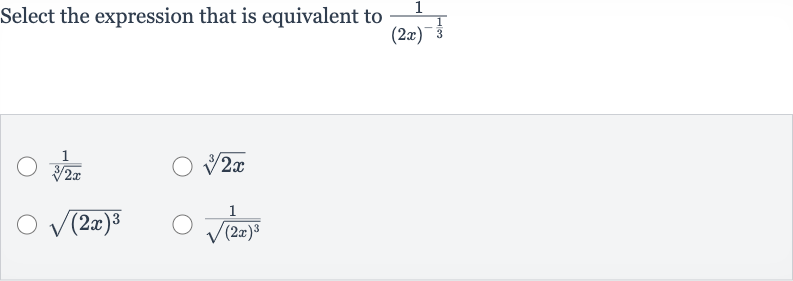AI tutor
Full solution
Q. Select the expression that is equivalent to
- Understand Expression: Understand the given expression.We have the expression . This is a fraction with a negative exponent in the denominator.
- Apply Negative Exponent Rule: Apply the negative exponent rule.The negative exponent rule states that . We can apply this rule to move the term with the negative exponent from the denominator to the numerator.
- Recognize Exponent Meaning: Recognize the meaning of the exponent .The exponent is equivalent to the cube root. Therefore, is the same as the cube root of .
- Compare with Options: Compare the result with the given options.The expression we have found, , matches one of the given options.
More problems from Multiplication with rational exponents
QuestionGet tutor help
QuestionGet tutor help
QuestionGet tutor help
QuestionGet tutor help
QuestionGet tutor help

